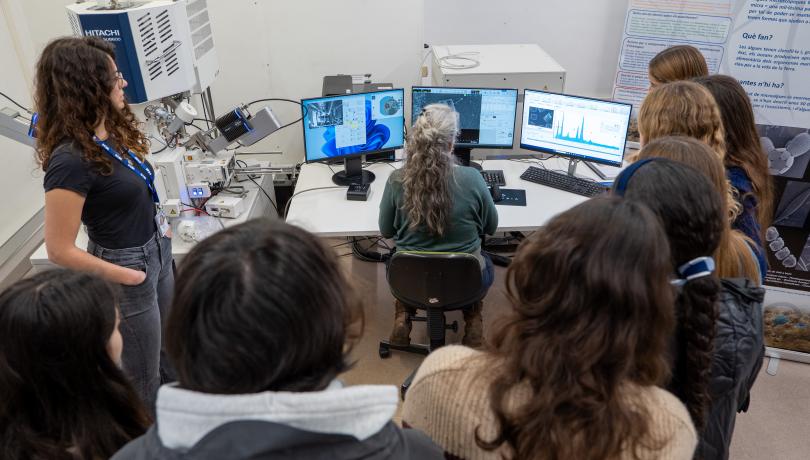Through this ‘In Depth’ report, the ICM-CSIC aims to convey its position regarding reducing teaching hours for science subjects in the baccalaureate.

The Institut de Ciències del Mar (ICM-CSIC), a centre of excellence in marine research, wishes to express its profound concern over the decision by the Ministry of Education, Vocational Training and Sports and the Department of Education of the Generalitat de Catalunya to reduce the teaching hours for Biology, Geology, Physics, and Chemistry in the baccalaureate, as well as to diminish the academic importance of the research project.
Climate change and its associated impacts represent the most significant global challenge humanity has ever faced. Tackling this challenge requires a profound transformation of current energy and production models and a worldwide commitment at the highest level, as outlined in the 2030 Integrated Energy and Climate Plan of Catalonia (PINNECAT). This transformation is only possible with a high level of public awareness of physical, geological, and biological phenomena, and it necessitates the highest level of education for students who will become the researchers of the future.
For this reason, the merging of subjects—which entails a severe reduction in teaching hours—and the diminished importance of the research project is entirely contradictory to current needs. In this time of climate crisis, scientific literacy is more crucial than ever.
At the ICM-CSIC, we are committed to building the future we envision for our oceans through excellence in research and collaboration with various social actors, using knowledge about the sea as a central pillar for fostering a more harmonious relationship between humanity and the ocean. Furthermore, we are strongly committed to the educational community, promoting the creation and development of regional, national, and European blue school networks.
In the face of the climate crisis, we need the highest possible scientific and ocean literacy levels. Therefore, it is essential to ensure that scientific knowledge reaches students and the public, who will become the future leaders and agents of the necessary change. Today’s environmental challenges can only be addressed by guaranteeing a solid foundation in scientific knowledge.
For this reason, we demand that the Ministry of Education and the Department of Education immediately reverse this decision, which is entirely unfounded and was made without consultation with representatives of the scientific community or educators. Likewise, we urge the Department of Education to remain faithful to the commitments made in the PINNECAT.
Additionally, we call on other scientific organisations to join this appeal.